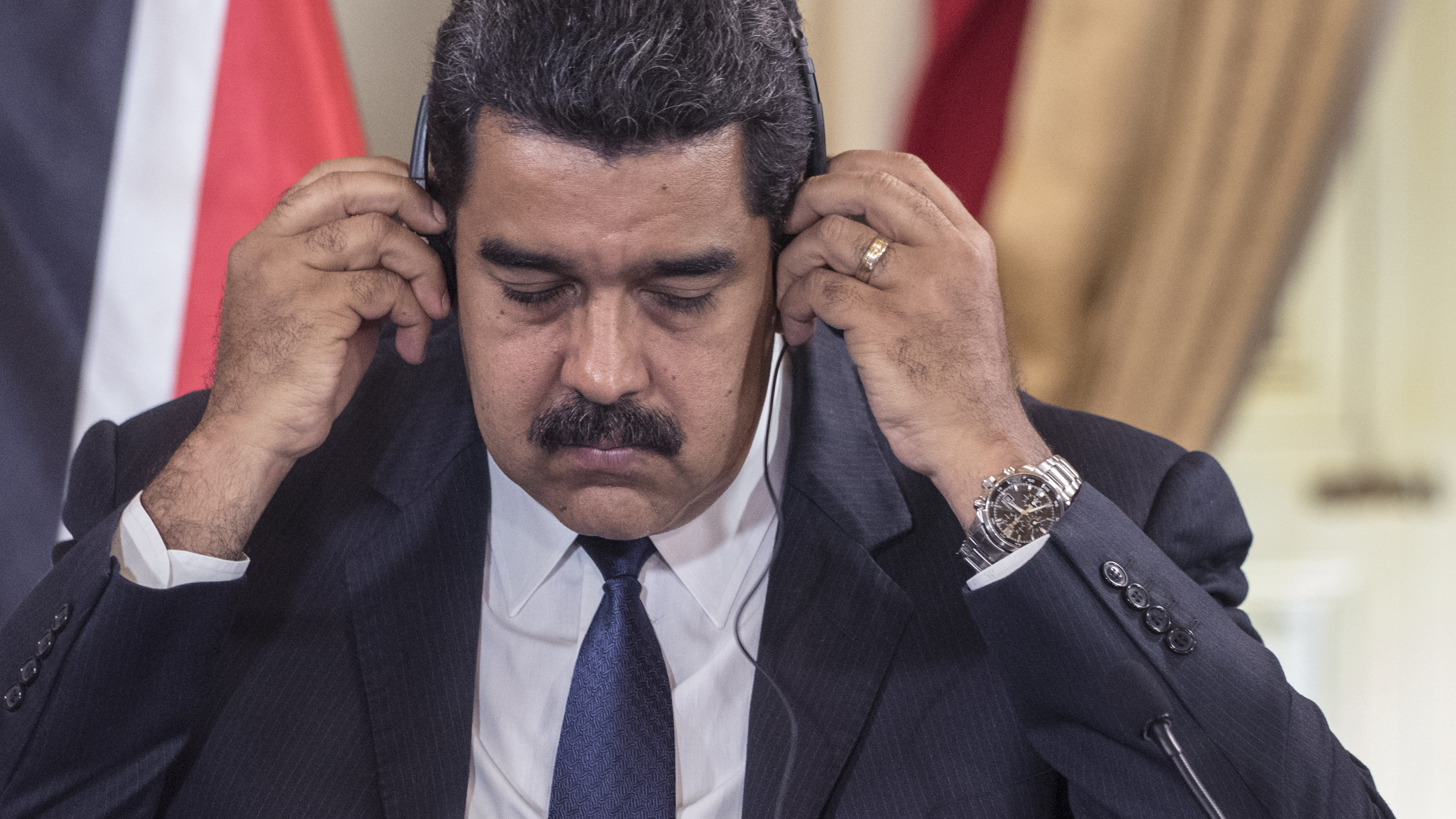An Alternative to the Iran Deal?
In the last few weeks, nuclear negotiations with Iran have taken on an aura of inevitability.
In the last few weeks, nuclear negotiations with Iran have taken on an aura of inevitability. Even as critics of the forthcoming deal have successfully highlighted its flaws---the sunset date, the unfeasability of “snapback” provisions, the empowerment of the major source of regional instability---they have failed completely in convincing the public that an alternative exists.
Opponents lamely protest that there is still a “better deal” to be had, but they are dismissed as wishful thinkers detached from reality. There is a simple reason for this: Rarely do any of the deal’s critics articulate how they intend to get from point A (now) to point B (a better deal). It is too easy to suggest that if our strategy were different, if our negotiators push harder, if we tighten sanctions a little further, a better offer should up on the table. But without specific arguments and explanations for why and how an alternative is achievable, the president’s way seems like the only way.
After a number of conversations with some of these critics, however, I’m increasingly convinced that there is an alternative, albeit a poorly articulated one. To be sure, it has question marks and uncertainties---and the deal currently being hammered out may yet offer the best balance of risks and benefits. But there is another side of the ledger. Here, then, is a roadmap to that alternative path.
First, American negotiators would have to allow the current round of negotiations to fail, but without blowing up or reneging on any already-made commitments. Doing so should not be too difficult. There are enough unresolved issues that adopting a hard (and reasonable) line on, say, the timing of sanctions relief or the reach of inspections would either force Iranian capitulation (good) or lead to an impasse---which from this perspective would be fine as well.
Simultaneously, the US would have to engage energetically with other members of the P5+1 to ensure that a such an impasse doesn’t result in the unraveling of existing sanctions. Given current relations with Russia in particular, significantly expanding international sanctions would likely be a stretch, but with the help of the French and the Gulf states, maintaining the existing regime should still be possible. Certainly, it is more likely (and vastly simpler) than re-implementing sanctions in response to an Iranian violation, five or ten years down the line.
The major question, of course, is what Iran will do if a deal is not signed by June 30. It is on this point that the warnings of the forthcoming deal’s backers have been at their most alarming. On their account, failure to reach a deal will inevitably lead to crisis: a rapid end to the (currently extensive) inspections regime, followed by a hasty ramp-up in the Iranian nuclear program, and thus eventually, war. When this is the alternative, the current deal---even with its myriad problems---looks attractive.
Vice President Joseph Biden’s speech last month at the Washington Institute for Near East Policy, is instructive here: “They already have paved a path to a bomb’s worth of material,” Biden told the audience. “Iran could get there now if they walked away in two to three months without a deal. Under the deal we’re negotiating now, we radically alter that timetable.”
But these doomsday predictions aren’t gospel. Functionally, the difference between three months and a year may not be all that significant. Neither window provides enough time to bring serious additional sanctions; both provide the time for a military strike. More importantly, Iran’s interest in avoiding a dramatic escalation is at at least as strong as ours. War would be costly for us, and even more for our regional allies. But it would costliest for Iran. Even short of war, Iran’s interest in avoiding economy-wrecking sanctions of the sort prepared by Senators Kirk and Menendez are as strong today as they were six months or a year ago.
The competing interpretation (and this is something about which far too few of the deal’s critics speak concretely) is that Iran will make some noise, but will actually seek a temporary stop-gap accommodation. It may build a few more centrifuges and reduce inspections by a marginal amount, and in return, the White House and its allies would mildly tighten some existing sanctions. Kirk-Menendez will remain on the shelf and Iran’s breakout time will continue to hover near the three-month mark. There will be Iranian violations and American threats, but both sides will keep their provocations below a certain escalatory threshold, and diplomats will resume talks under an arrangement roughly similar to the JPOA.
Every few months, the sides will hold a summit and announce progress. Occasionally, limited sanctions relief will be exchanged for better inspections and increased constraints. In a few years, when memories have faded and sanctions are once again strangling the Iranian economy, we might pursue another comprehensive deal on more favorable terms. But more likely, we will continue to muddle along for years to come, exchanging limited relief for limited constraints---always keeping Iran from a nuclear capability, but never fully relaxing the vise.
This vision lacks the high drama of a historic rapprochement, but it is an alternative. Naturally, either path represents a seismic gamble. A deal might lead to long-term peace---or pave the path for an Iranian bomb a decade from now. A breakdown in negotiations might lead to an immediate Iranian race for a weapon---or a long-term, workable modus vivendi that keeps Iran contained and nuclear-free for decades to come. All choices carry risks.
Yishai Schwartz is a third-year student at Yale Law School. Previously, he was an associate editor at Lawfare and a reporter-researcher for The New Republic. He holds a BA from Yale in philosophy and religious studies.




